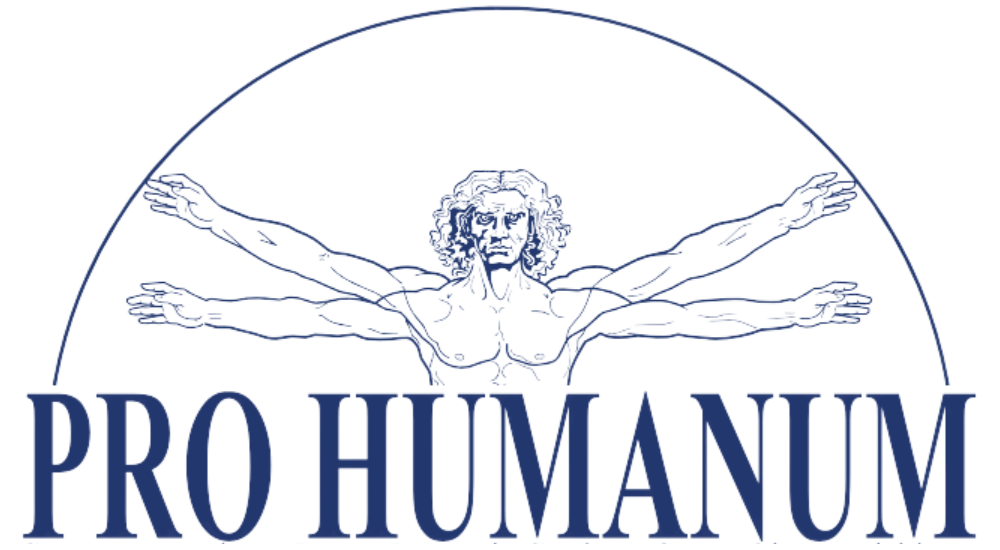Adres:
Jagiellońska 54
03-463 Warszawa
Staff
The board of the Pro Humanum Association
The Chairman:
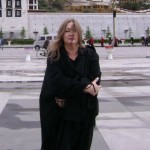
Beata Machul-Telus – political scientist, educator. A graduate of the Institute of German and European Research of the Wrocław University, Polish Teachers’ Union’s University of Pedagogy in Warsaw and of Postgraduate Studies of Philosophy at Warsaw University. She graduated from Summer School of Teaching about the Holocaust (2008) and finished the Multicultural Europe educational project (2006) organised by the Jagiellonian University. Co-author of a treatise on National Programme of Preventing Racial Discrimination, Xenophobia and Intolerance Connected with them 2004-2009. She conducts classes on prejudices and stereotypes, multiculturalism and preventing the discrimination. Author and coordinator of numerous educational projects on human and civil rights. She also posesses a certificate of Mazowsze Region Representative of European Funds. She cooperated with Prime Minister’s Chancellary, Ministry of Internal Affairs and Administration, Center for the Advancement of Teaching and British Council Poland.
Vice-chairman:
J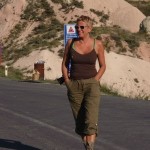 olanta Lange – Doctor of Humanities of the Pedagogic Research Institute in Warsaw. Promoter of the idea of the equal status of women and men. She was the head of the „Equal chances against violence” project realised by UNDP and the leader of the twinning project in the area of strenghtening the Anti-Corruption Strategy within the framework of PHARE 2003 programme. She specialises in instruction on European Union and implementing Structural Funds. An author of numerous publications on pedagogy an European funds. She cooperated in realisation of many PHARE programmes, she is a member of monitoring committees and a member of expert’s pannel SPORR. Currently she conducts classes on promotion, marketing, structural funds at the A. Gieysztor’s Humanities Academy in Pułtusk.
olanta Lange – Doctor of Humanities of the Pedagogic Research Institute in Warsaw. Promoter of the idea of the equal status of women and men. She was the head of the „Equal chances against violence” project realised by UNDP and the leader of the twinning project in the area of strenghtening the Anti-Corruption Strategy within the framework of PHARE 2003 programme. She specialises in instruction on European Union and implementing Structural Funds. An author of numerous publications on pedagogy an European funds. She cooperated in realisation of many PHARE programmes, she is a member of monitoring committees and a member of expert’s pannel SPORR. Currently she conducts classes on promotion, marketing, structural funds at the A. Gieysztor’s Humanities Academy in Pułtusk.
Secretary:
Elżbieta Motyka-Machul – lawyer, graduate of the Law Faculty of the Wrocław University. A scout and social activist. Author and organizer of numerous charity actions for the socially marginalised children. Recently she organised a series of concerts „For a Child’s Smile”, in which the children of the Chopin’s Music School in Warsaw played and raised funds for the Children’s Hospice in Warsaw.
Bursar:
Lech M. Nijakowski – is a graduate of sociology (2001) and philosophy (2003) of the Warsaw University. In 2005 he obtained a degree of Doctor of Humanities in the field of sociology at the Department of Philosophy and Sociology of the Warsaw University. Currently he works as a lecturer at the Institute of Sociology of the Warsaw University and as the Head of the Social and Economic Sciences Institute of the College of Security and Protection in Warsaw. Since 2001 he has been the Permanent Adviser of the National and Ethnic Minorities Committee of the Polish Parliament (IV, V, VI tenure of the Parliament). Chief editor of the „Rubikon. Academic Quarterly”. Board member of the „Polish-German Reconcilliation” Fund. Fund for the Polish Education scholarship holder. He had 12 books published, of which he is the author, co-author or editor and also over seventy scientific and popular science articles.
Fields of interest and research: national and ethnic minorities (legal, sociological and historical aspects); ethnic animosities and conflicts, ethnic stereotypes and prejudices; aggression, violence and war theories (intedisciplinary approach); the problems of ethnic cleansing, genocide and massacre; contemporary sociological theories; body and transgression, deviation and pornography; politics of memory; social philosophy.
Members:
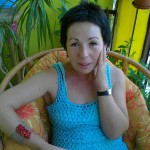 Anna Bistroń – z wykształcenia i zamiłowania filolog i judaistka. Absolwentka rumunistyki Uniwersytetu Jagiellońskiego i filozofii na Uniwersytecie Warszawskim. Współpracowała z Fundacją dla Somali, m.in. prowadząc badania społeczności uchodźców somalijskich w kompleksie obozów w Dadaab. Uwielbia podróże i “wtykanie nosa” do najmniej bezpiecznych miejsc. Krytyczna miłośniczka Izraela z jego interesująco skomplikowanym społeczeństwem. Aktualnie uczestniczy w projekcie badawczym „Zapomniane mniejszości Gruzji – tożsamość, tradycja, edukacja”, badając losy społeczności gruzińskich Żydów.
Anna Bistroń – z wykształcenia i zamiłowania filolog i judaistka. Absolwentka rumunistyki Uniwersytetu Jagiellońskiego i filozofii na Uniwersytecie Warszawskim. Współpracowała z Fundacją dla Somali, m.in. prowadząc badania społeczności uchodźców somalijskich w kompleksie obozów w Dadaab. Uwielbia podróże i “wtykanie nosa” do najmniej bezpiecznych miejsc. Krytyczna miłośniczka Izraela z jego interesująco skomplikowanym społeczeństwem. Aktualnie uczestniczy w projekcie badawczym „Zapomniane mniejszości Gruzji – tożsamość, tradycja, edukacja”, badając losy społeczności gruzińskich Żydów.
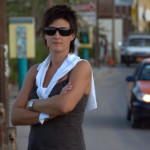 Joanna Brzezińska – absolwentka Wydziału Pedagogiki Uniwersytetu Łódzkiego. Nauczycielka wychowania fizycznego z wykształcenia, kierownik zarządzający siecią gabinetów stomatologicznych z zawodu, fotograf i podróżnik z zamiłowania. Doskonale pasuje do niej określenie “jestem kobietą pracującą – żadnej pracy się nie boję”. Pracowała w radiu i gazecie, była kierownikiem pubu, pilotką wycieczek zagranicznych, rezydentką w Tajlandii i na Florydzie, prowadziła kilka stacji paliw, przez lata pracowała także z dziećmi i młodzieżą.
Joanna Brzezińska – absolwentka Wydziału Pedagogiki Uniwersytetu Łódzkiego. Nauczycielka wychowania fizycznego z wykształcenia, kierownik zarządzający siecią gabinetów stomatologicznych z zawodu, fotograf i podróżnik z zamiłowania. Doskonale pasuje do niej określenie “jestem kobietą pracującą – żadnej pracy się nie boję”. Pracowała w radiu i gazecie, była kierownikiem pubu, pilotką wycieczek zagranicznych, rezydentką w Tajlandii i na Florydzie, prowadziła kilka stacji paliw, przez lata pracowała także z dziećmi i młodzieżą.
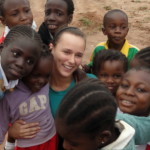 Katarzyna Heider – Absolwentka socjologii Uniwersytetu Wrocławskiego oraz studentka psychologii Szkoły Wyższej Psychologii Społecznej. Obecnie pracownik wrocławskiego Domu Europy. Prowadzi szkolenia dla dzieci i młodzieży z zakresu tematyki unijnej. Specjalizuje się w zagadnieniach wielokulturowości. Kocha podróże do najdalszych zakątków świata oraz literaturę ibero-amerykańską. Zainteresowana problemami globalnymi współczesnego świata. Swoje doświadczenie zdobywała m.in. podczas wolontariatu w Nigerii.
Katarzyna Heider – Absolwentka socjologii Uniwersytetu Wrocławskiego oraz studentka psychologii Szkoły Wyższej Psychologii Społecznej. Obecnie pracownik wrocławskiego Domu Europy. Prowadzi szkolenia dla dzieci i młodzieży z zakresu tematyki unijnej. Specjalizuje się w zagadnieniach wielokulturowości. Kocha podróże do najdalszych zakątków świata oraz literaturę ibero-amerykańską. Zainteresowana problemami globalnymi współczesnego świata. Swoje doświadczenie zdobywała m.in. podczas wolontariatu w Nigerii.
 Zdzisław Janulewicz – French and Spanish philologist – translator of French, Spanish, English, Italian and Russian. Graduate of the Faculty of Foreign Philology of the Warsaw University and of the College of International Commerce of the Warsaw School of Economics. A specialist in the field of international cooperation and diplomatic protocole.
Zdzisław Janulewicz – French and Spanish philologist – translator of French, Spanish, English, Italian and Russian. Graduate of the Faculty of Foreign Philology of the Warsaw University and of the College of International Commerce of the Warsaw School of Economics. A specialist in the field of international cooperation and diplomatic protocole.
 Urszula Markowska-Manista – Doctor of Humanities, researcher, educator and secretary of Janusz Korczak’s UNESCO Faculty, Interdisciplinary Studies on Development and Well-being of Children of the Special Pedagogy Academy in Warsaw. Coordinator of international and local projects on civic society, global education and intercultural dialogue within the framework of Euroforum Platform East/West cooperation. She conducts classes and research in the fields of intercultural education, human rights and education. She handles the education of Bayaka Pygmy and Children’s Rights in Middle Africa. A member of Polish Committe for the Celebration of the International Year of People of African Origin (2011) at UNO.
Urszula Markowska-Manista – Doctor of Humanities, researcher, educator and secretary of Janusz Korczak’s UNESCO Faculty, Interdisciplinary Studies on Development and Well-being of Children of the Special Pedagogy Academy in Warsaw. Coordinator of international and local projects on civic society, global education and intercultural dialogue within the framework of Euroforum Platform East/West cooperation. She conducts classes and research in the fields of intercultural education, human rights and education. She handles the education of Bayaka Pygmy and Children’s Rights in Middle Africa. A member of Polish Committe for the Celebration of the International Year of People of African Origin (2011) at UNO.
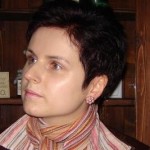 Aleksandra Niedźwiedzka-Wardak – absolwentka pedagogiki (specjalność: psychopedagogika kreatywności i nauczanie etyki w szkole), pracownik naukowo-dydaktyczny w Zakładzie Pedeutologii Akademii Pedagogiki Specjalnej w Warszawie. Koordynatorka projektów z zakresu edukacji globalnej dla różnych grup wiekowych i edukacji informatycznej seniorów. Prowadzi badania w obszarze edukacji informatycznej seniorów. Nauczycielka i szkoleniowiec (zajęcia z etyki wg autorskiego programu dla klas 1-3 i 4-6 w W-wie, zajęcia wokalne dla dzieci i młodzieży oraz z zakresu treningu twórczości).
Aleksandra Niedźwiedzka-Wardak – absolwentka pedagogiki (specjalność: psychopedagogika kreatywności i nauczanie etyki w szkole), pracownik naukowo-dydaktyczny w Zakładzie Pedeutologii Akademii Pedagogiki Specjalnej w Warszawie. Koordynatorka projektów z zakresu edukacji globalnej dla różnych grup wiekowych i edukacji informatycznej seniorów. Prowadzi badania w obszarze edukacji informatycznej seniorów. Nauczycielka i szkoleniowiec (zajęcia z etyki wg autorskiego programu dla klas 1-3 i 4-6 w W-wie, zajęcia wokalne dla dzieci i młodzieży oraz z zakresu treningu twórczości).
Katarzyna Nowak – a graduate of the Polish Philology Department of the Jagiellonian University. A reader at the Publishing Section of the National Auschwitz-Birkenau Museum in Oświęcim, deputy secretary of the board of the Pro Memoria Information Bulletin. An active member of the anti-nazi „Never Again” Asociation. An author of educational projects on multiculturalism.
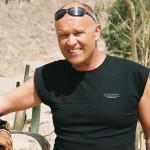 Tadeusz Olczak – electronics engineer, political scientist, coach, traveller. Specialist in the field of political marketing and public relations. Certified Representative of European Funds, business consultant in the field of diversity management. An author of many publications on electronic media. He has completed many courses in management with a special focus on the theme of e-office, e-council. Organizer of marketing and election campaigns.
Tadeusz Olczak – electronics engineer, political scientist, coach, traveller. Specialist in the field of political marketing and public relations. Certified Representative of European Funds, business consultant in the field of diversity management. An author of many publications on electronic media. He has completed many courses in management with a special focus on the theme of e-office, e-council. Organizer of marketing and election campaigns.
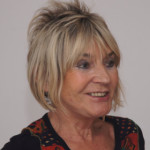 Zofia Suska – jest dziennikarką, chyba nie ma w Polsce drugiej takiej, która od ponad pół wieku tak intensywnie zwiedza świat. Najbardziej pociągają ją miejsca trudno dostępne, do których nie docierają turyści. Pływała z płaszczkami, podglądała gepardy i woły piżmowe, skakała na bungee do Zambezi. Była na wszystkich kontynentach z wyjątkiem Antarktydy. Ma na koncie cykl ponad 300 audycji telewizyjnych pt. Kartki z podroży do Azji Południowo-Wschodniej.
Zofia Suska – jest dziennikarką, chyba nie ma w Polsce drugiej takiej, która od ponad pół wieku tak intensywnie zwiedza świat. Najbardziej pociągają ją miejsca trudno dostępne, do których nie docierają turyści. Pływała z płaszczkami, podglądała gepardy i woły piżmowe, skakała na bungee do Zambezi. Była na wszystkich kontynentach z wyjątkiem Antarktydy. Ma na koncie cykl ponad 300 audycji telewizyjnych pt. Kartki z podroży do Azji Południowo-Wschodniej.
